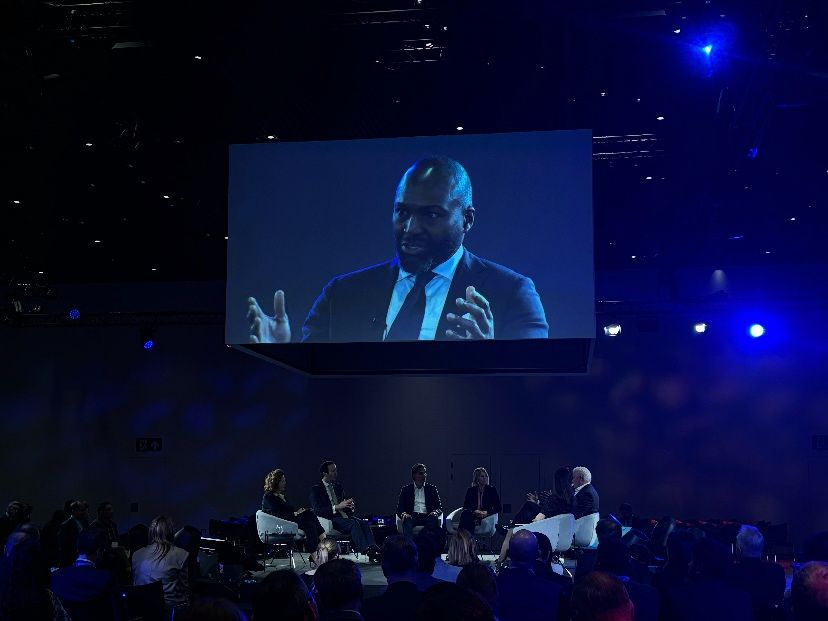Dimeta team recently attended the World Energy Congress, where our CEO, Frankie Ugboma, participated in a discussion about the future of renewable fuels, including renewable and recycled carbon DME, alongside other industry leaders.
Empowering Change through Cross-Sector Collaboration
Dimeta made a significant impact on the global energy stage at the World Energy Congress, where our CEO, Frankie Ugboma, participated in the discussion under the theme “Refueling the future: the molecules and clean fuels (r)evolution,” alongside other industry leaders, including Javier Cavada, President & CEO from Mitsubishi Power EMEA, Cetin Nazikkol, Chief Strategy Officer from Thyssenkrupp, Clara Bowman, Chief Operating Officer from HIF Global, Roland Kaeppner, Managing Director of Hydrogen and Green Fuels from ENOWA and Nevin Alija, Future Energy Leader from World Energy Council. Ms Eithne Treanor moderated the session.
During the session, Frankie emphasised the importance of cross-sector collaboration and cohesive strategies in driving an inclusive energy transition. He also highlighted the critical need to embrace a diverse mix of energy solutions, mainly focusing on the role of renewable & recycled carbon DME in decarbonising the off-grid sector and achieving a more sustainable future.
“By leveraging cross-sector collaboration and solutions like renewable & recycled carbon DME, we can ensure a fair and inclusive energy transition”.
Frankie Ugboma, Dimeta CEO
A Multi-Faceted Approach to Energy Solutions
The congress’s discussion delved into various alternative fuels, such as renewable & recycled carbon DME, hydrogen, and biofuels, and explored the challenges and opportunities in scaling these solutions for large-scale implementation. It highlighted the essential role of collaboration and investor support in making cleaner energy solutions a fundamental part of our future energy landscape.
Addressing Global Energy Challenges
The world needs to reduce greenhouse gas emissions by 50% by 2030 and achieve net-zero emissions by 2050. The urgency is evident, particularly in rural and remote areas where over one billion people have no connection to the main gas grid. Off-grid regions heavily rely on high-carbon fossil fuels or cleaner alternatives like LPG for daily heating, cooking, and hot water. Frankie highlighted that it is imperative to ensure no one is left behind in the energy transition and address the varying energy needs across different geographical locations. A diverse multi-solution approach is necessary to meet global climate targets and drive equitable energy access for all.
Frankie also had the opportunity to discuss the role of renewable & recycled carbon DME in decarbonising off-grid areas with World Energy TV, underscoring its potential in shaping a sustainable and inclusive energy landscape.
Dimeta’s role
Headquartered in Leiden, the Netherlands, Dimeta is a joint venture between SHV Energy and UGI International and aims to advance the production and adoption of renewable & recycled carbon DME, a sustainable liquid gas, to decarbonise off-grid sectors. Dimeta is developing opportunities for waste-to-DME production worldwide, using circular economy principles and encouraging collaboration across the value chain.
Renewable & recycled carbon DME is a clean-burning fuel that can be produced through various pathways, utilising feedstocks such as waste or biogas and innovative technologies, including gasification and Power-to-X. DME can reduce greenhouse gas emissions by up to 85% and improve air quality compared to traditional fuels like oil and diesel. With carbon capture, DME can achieve emissions savings of over 100%. Furthermore, DME’s versatility seamlessly allows it to blend into LPG without equipment or appliance modifications. DME can also be used as pure fuel in dedicated appliances.







